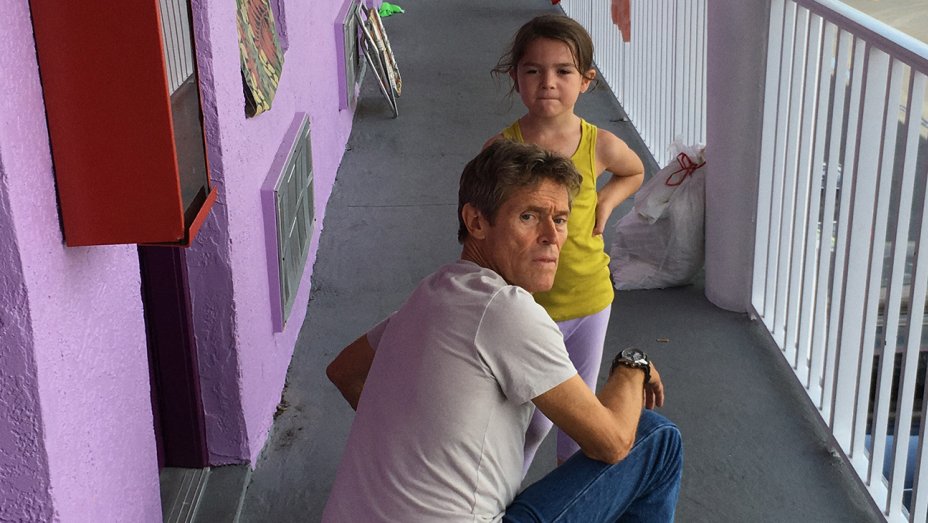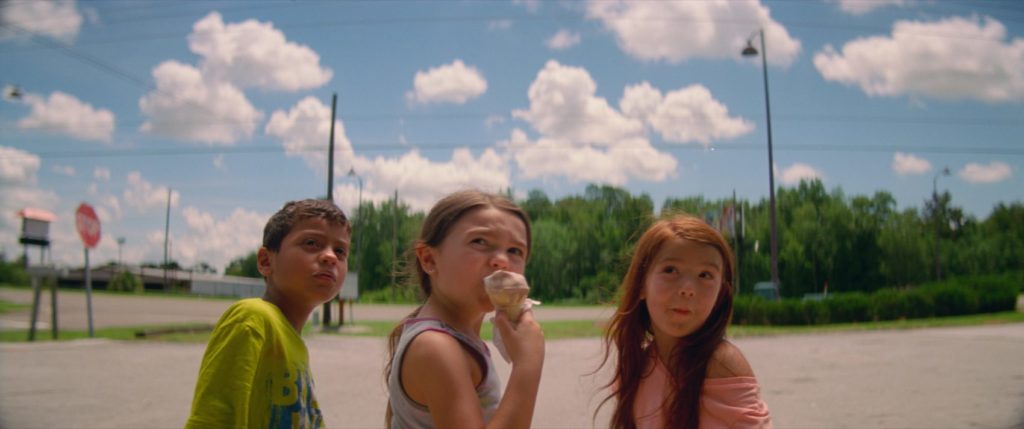
The gripping and searingly authentic drama The Florida Project centers in the plight of six-year-olds living in a poverty motel in Orlando, Florida. These are what we used to call “latchkey kids” – children unsupervised and essentially feral because their parents are focused on economic survival.
The parents, moored in multi-generational poverty and mostly classified as the working poor, understand that this situation is not ideal for the kids. All the parents love their kids, and most take extra steps to protect them and to raise them with the right values. These are people who are forced into unappealing choices – working multiple minimum wage jobs and leaving kids at home because they can’t access childcare, and even relocating and uprooting their kids from their friends and familiar environments.
These families are living literally in the shadow of Disney World, where tens of thousands of families are paying for $100 theme park tickets and $200 hotel rooms; the residents of the The Florida Project’s Magic Kingdom motel are paying $35 per night and can’t afford ice cream for their kids.
The kids are on their own to express their exuberance, curiosity and mischief. Some of their misadventures are innocent and harmless, but some range to the very dangerous. We see the kids’ moral compasses being forged, often not along the best axis. Even the local Motel Row traffic is scary. The sketchy environs, with the anonymous transience of the tourists and with some of the locals in the criminal class, is even more foreboding. For most of each day, the only responsible and caring adult is the beleaguered motel manager, Bobby (Willem Dafoe – great in this movie). Here’s the effect on the audience – we enjoy the kids’ joy in play and exploration, but worry, along with Bobby, about their safety.

The ringleader of the kid is the highly spirited Moonee. Moonee is perfectly played by Brooklynn Prince, a very talented and charismatic child actor.
The smart and charming Moonee’s disadvantage is her Mom, Hallee (Bria Vinaite) – a tattooed and pierced woman in her early twenties. Hallee is as immature as Moonee, and is basically a walking bundle of Bad Choices. She has a terrible, irresponsible and entitled attitude, and always does things the easiest way in the short-term, regardless of legality or long-term consequence. Hallee knows that she’s one more arrest from having Moonee taken away. The term “unfit mother” has come to seem quaint – but not here, where the audience eventually starts begging for child welfare officials to rescue Moonee from her Mom.
The Florida Project was written, directed and edited by Sean Baker, who most recently made Tangerine, the movie he shot entirely on an iPhone (and you can’t tell). In both The Florida Project and Tangerine, Baker uses first-time actors to tell a character-driven story about marginalized people. Baker found Bria Vinaite, the non-actor who plays Hallee on Instagram. It’s also the first screen credit for Mela Murder, who plays Ashley, a mom who is perceptive enough to ascertain that her son needs to disassociate from his best friend Moonee because of Hallee’s influence.
One of the minor beauties of The Florida Project is the whimsy of roadside vernacular architecture in Orlando, the tourist-hustling commercial buildings from the 1940s-1970s built as castles, ships, dogs and the like.
The Florida Project is close to a perfect movie, but not quite there. Baker did edit his own movie, and one hour, 51 minutes is a little too long for this story. And, two months after seeing the movie, I’m still not sure what I think about the controversial ending. The movie has the feel of cinéma vérité until it doesn’t, when the audience is jarred by a sudden plunge into magical realism. Unlike some viewers and critics, I thought that the ending did have a truthful consistency with the preceding story; but there’s no doubt that the abrupt change in tone pulls the audience out of being immersed in the story.
Still, The Florida Project is a Must See for its emotional power and its uncommonly authentic dive into an oft-ignored subculture. As Willy Loman’s wife says in The Death of a Salesman, attention must be paid.
